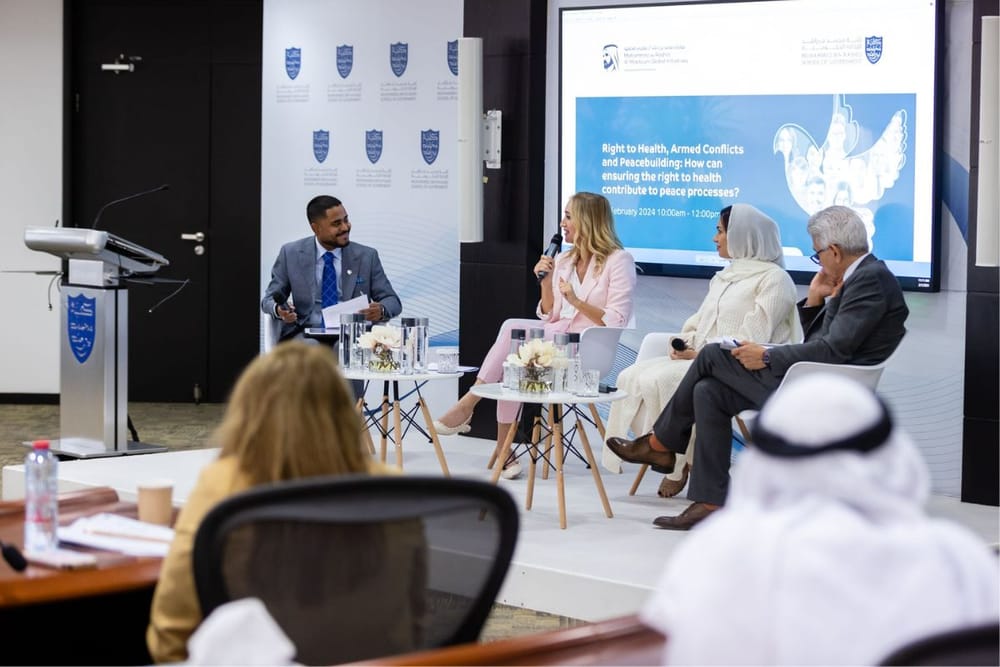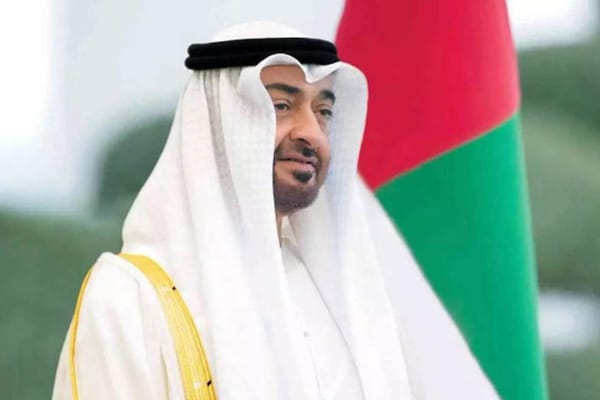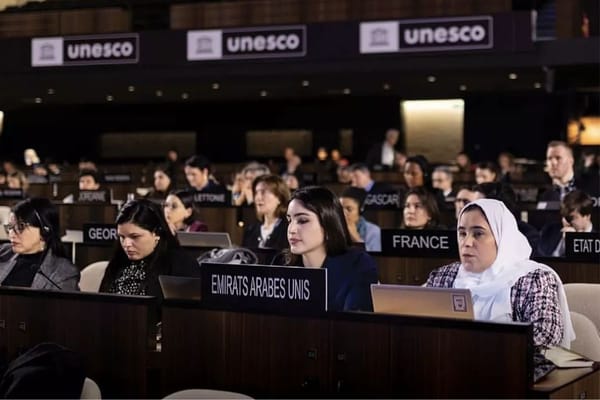The Mohammed Bin Rashid School of Government (MBRSG), in partnership with the Geneva Centre for Human Rights Advancement and Global Dialogue (GCHRAGD), hosted an interactive panel discussion to examine the most effective and practical global government practices that can enhance healthcare access as a key element in peace-building processes.
As part of a strategic Memorandum of Understanding (MOU), a panel discussion was held to encourage educational and research initiatives in human rights and governance. Themed "Right to Health and Peacebuilding Amidst Geopolitical Tensions," the session focused on integrating healthcare into peace processes and conflict resolution. The panel featured experts from the International Humanitarian City, the Geneva Centre for Human Rights Advancement and Global Dialogue, Dubai Health Authority, and the International Committee of the Red Cross. Moderated by Professor Immanuel Azaad Moonesar of MBRSG, discussions centered on the role of healthcare policymakers in operationalizing health as a bridge to peace through conflict analysis, advocacy, and capacity building.
Professor Immanuel Azaad Moonesar, Professor of Health Policy and Systems Research of MBRSG, emphasized that the policy council workshop underscored MBRSG's commitment to fostering global dialogue. The discussion offered vital insights for governments, societal groups, private entities, international allies, and individuals on promoting health rights as a pathway to peace.
Dr. Umesh Palwankar, the Executive Director of GCHRAGD, underscored the critical role of humanitarian law in safeguarding non-combatants in armed conflicts in his remarks. He stressed the importance of upholding the right to health and physical and moral integrity, ensuring the safety of the wounded, sick, and medical personnel, and protecting medical facilities and transports. Highlighting the severe humanitarian crises, including starvation, disease, and health threats resulting from violations of these principles in conflicts like the Middle East war.
Dr. Palwankar reinforced the Geneva Centre's commitment to research, advocacy, and capacity building in human rights. He noted the Centre's focus on equality, justice, and environmental sustainability and the significant role of its collaboration with MBRSG, which began even before the formalization of their MoU, in facilitating global dialogues and collaborations through various events and publications.
The panel session identified three potential intervention avenues for health as a bridge for peace programs - delivering health services in conflict zones, providing a neutral platform to collaborate on health issues, and offering mental health and rehabilitation services to aid reconciliation in conflict-affected communities.
A comprehensive report, including panel proceedings, a Q&A session, analytical insights, and the full statements of the panelists, is to be published and distributed, contributing further to the discourse on healthcare's role in peacebuilding.
News Source: Emirates News Agency









